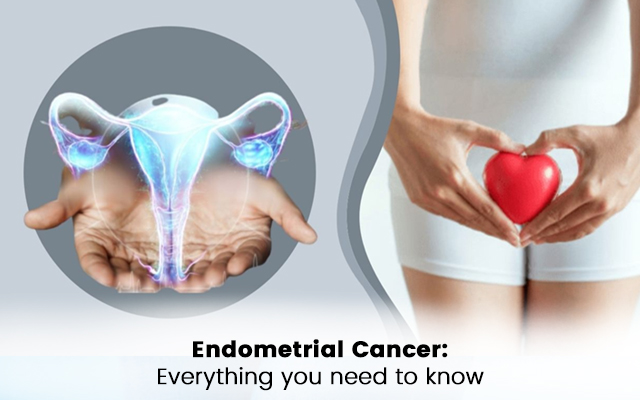Endometrial cancer is a type of cancer in which abnormal cells start growing in the lining of the uterus, known as the endometrium. It is sometimes known as “uterine cancer.” This type of cancer usually develops in women after menopause; however, it may affect individuals of any age. Endometrial cancer can be easily detected in the early stage as it often leads to abnormal vaginal bleeding. When detected early, the cancer is treatable, says the best gynaecologist doctor in Behala.
When to seek medical advice?
Endometrial cancer requires a timely diagnosis. Hence, recognizing the early symptoms is crucial to seek proper treatment. Here are some of the symptoms.
- Abnormal uterine bleeding: If you experience an irregular or postmenopausal period, it is essential to consult a doctor without delay.
- Severe pelvic pain and discomfort: Chronic pelvic pain should not be ignored and consulted with a doctor immediately.
- Unusual vaginal discharge: Abnormal vaginal discharge, especially if it’s watery or bloody or has a foul smell.
- Painful intercourse: Pain or discomfort during sexual intercourse should not be ignored and always be discussed with a doctor.
- Menstrual changes: Adolescents experiencing irregular or heavy menstrual cycles should be evaluated, especially if accompanied by other concerning symptoms.
- Infertility: One of the infertility doctors in South Kolkata stated that untreated endometrial cancer often leads to infertility issues.
If you experience any of these symptoms for a long time, don’t hesitate to consult a doctor regarding your gynaecological health. Your doctor will conduct appropriate tests to address any potential complications.
What causes endometrial cancer?
The exact cause of endometrial cancer has not been established yet. However, there are several risk factors, as suggested by the best gynaecologist doctor in Behala increase the chance of developing this condition.
- Hormonal imbalance: An excess of estrogen without progesterone can increase the risk of endometrial cancer.
- Age: As you get older, the risk of endometrial cancer also increases.
- Obesity: Excessive body weight, when accompanied by high levels of estrogen also puts you at risk of developing this condition.
- Polycystic Ovary Syndrome (PCOS): PCOS is often associated with hormonal imbalances that can increase the risk of endometrial cancer.
- Late menopause: If your menstrual period span stays longer even after 50 years, there is a chance you might develop endometrial cancer.
It is to be noted that some women suffer from endometrial cancer without even falling under these risk factors. Thus regular gynaecological health check-up is recommended to identify the cause and begin treatment accordingly.
Treatment option
Any issues regarding your gynaecological health must not be ignored as they can cause other complications and fertility issues, stated a well-known infertility doctor in south Kolkata.
Here are the treatment options for endometrial cancer is as follows:
- Surgery to remove the uterus, fallopian tubes and ovaries
- Radiation therapy to kill the cancer cells
- Chemotherapy to shrink the cancer cells
- Immunotherapy to increase the body’s immune system’s fight against cancer
Conclusion
Endometrial cancer is curable if treated early. If you experience any signs of endometrial cancer always make sure you consult the top gynecologist for screening and effective treatment options.

